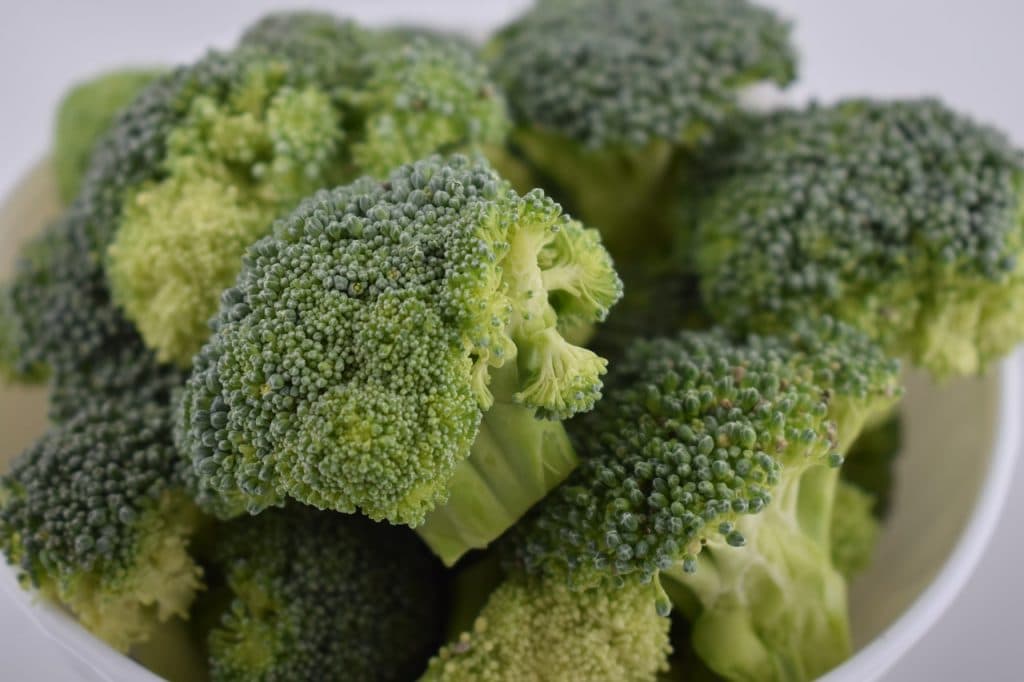
Broccoli and Gout
Before we get into potential interactions between broccoli and gout let’s remind ourselves of what gout is.
Gout
Gout is an extremely painful form of inflammatory arthritis caused by too much uric acid in the body resulting in microscopic, needle-like crystals of monosodium urate appearing in the joints and associated tissue.
Uric acid is a byproduct of the metabolic breakdown of purines; chemical compounds that exist in our body’s cells and, at varying concentrations, in the cells of food we eat.
But studies have linked a high-purine diet with an increased risk of incident gout and recurrent gout flares.
So someone with gout has to be very careful which foods they consume.
Let’s consider broccoli…
Broccoli
Broccoli is an edible green vegetable in the Brassicaceae family which includes cabbage, cauliflower, Brussels sprouts, kale, and collard greens, etc.
It has large, dense heads of dark green/bluish flower buds arranged in a mini tree-like structure branching out from a fairly thick green stalk.
It’s a man-made plant, originally bred from varieties of wild cabbage over 2,000 years ago in Italy, and is eaten raw or cooked.
China is now the largest producer of broccoli with around 40% of world production, followed by India at just under 35%. The USA is a distant 3rd with approx. 5%. Source.
Broccoli Health Benefits
Broccoli is rich in vitamins A, C, E, K, and B vitamins including folic acid (vitamin B9).
It’s also a good source of dietary fiber, omega-3 fatty acids, antioxidants, and minerals such as potassium, calcium, magnesium, manganese, copper, phosphorus, iron, zinc, choline, and selenium.
In addition, it contains zero fat and is low in calories and carbohydrates.
Such a highly nutritious vegetable may have some real health benefits. For example:
- vitamin C supports a healthy immune system and protects cells;
- vitamin E helps maintain healthy skin and eyes;
- vitamin K aids in blood clotting and promoting bone health;
- folic acid (vitamin B9) is important in the formation of red blood cells;
- dietary fiber helps control blood sugar, lowers cholesterol, and promotes bowel health;
- omega-3 fatty acids lower blood pressure, reduce triglycerides, and reduce the risk of stroke and heart attack;
- antioxidants help to neutralize free radicals which may play a role in heart disease and other diseases including cancer.
And, in aggregate, the minerals in broccoli may help to:
- reduce blood pressure;
- maintain fluid balance;
- make red blood cells;
- build strong bones and teeth;
- promote proper heart, muscle, and nerve function;
- reduce the risk of type-2 diabetes;
- convert food into energy;
- maintain a healthy immune system;
- prevent or slow osteoarthritis;
- reduce inflammation;
- heal open wounds;
- combat mood disorders.
So, in terms of your overall health, broccoli should definitely be one of your five a day.
But is it safe to eat if you’ve got gout? Let’s take a look…
Is Broccoli Safe in a Gout Diet?
Broccoli is low in purines since it produces less than 100 mg of uric acid per 3.5 oz (100 g) serving. So broccoli is safe to eat with gout as far as its purine content is concerned.
But broccoli sprouts are moderately high in purines as they produce between 100-200 mg of uric acid per 3.5 oz (100 g) serving, so have to be consumed in small amounts, and preferably not every day.
Note: Broccoli sprouts are just “baby broccoli” i.e. the green shoots that emerge just after germination and before they eventually turn into the large bushel.
Broccoli is a highly nutritious vegetable with many health benefits that, in terms of its purine content, is safe to add into your gout diet. One of your five a day.
But, not only is broccoli safe, it may even help your gout:
Studies have associated vitamin C with lower blood uric acid. And broccoli is high in that vitamin: 100 g of broccoli provides 99% of your daily vitamin C needs. Source.
And antioxidant compounds in broccoli display anti-inflammatory effects which may help in diseases like gout.
In addition, broccoli is alkaline-forming when digested. And an alkaline environment helps to impede the formation of uric acid crystals.
So, apart from its overall health benefits, broccoli may even help to reduce the risk of gout flares when consumed as part of a well-balanced, healthy gout diet.
Side Effects
Broccoli is generally safe to eat, but it can cause some gas or bowel irritation because of its high fiber content.
But people who are on blood-thinning medications need to be extra careful since broccoli’s high vitamin K content may interfere with those medications. So consult with your doctor or healthcare practitioner before consuming broccoli. The same goes for those with hypothyroidism, as broccoli may interfere with the production of iodine.



